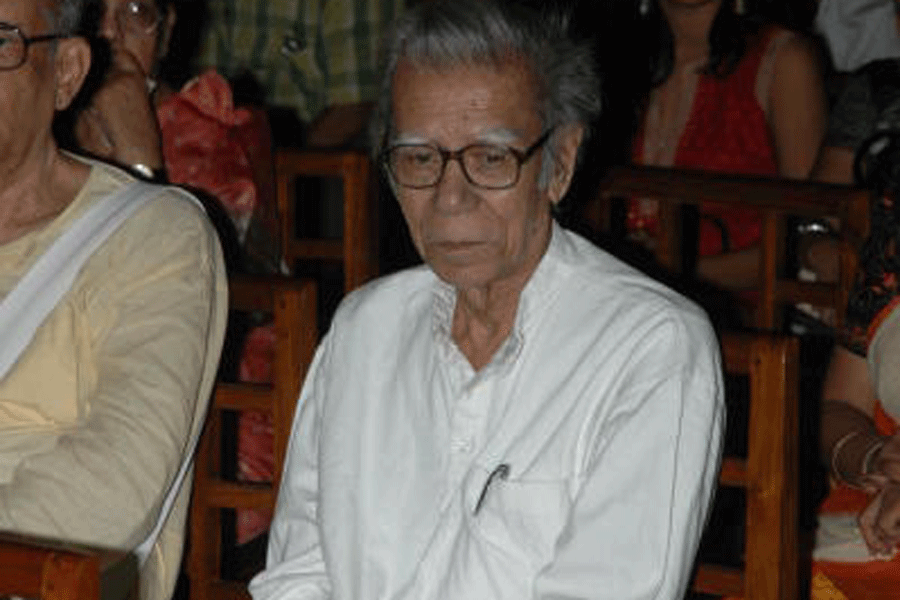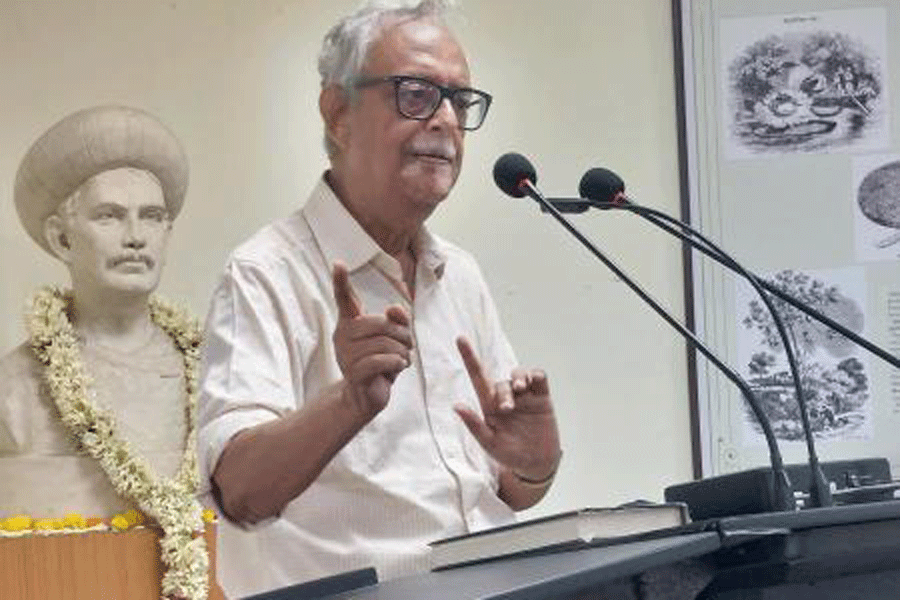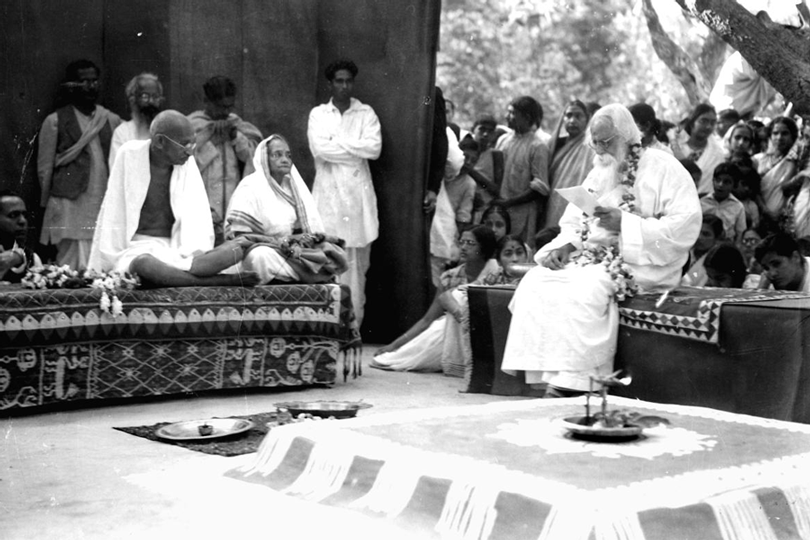It is not enough to maintain a respectful distance when it comes to another’s religion as the veil of indifference might foster silent intolerance. One has to interact with others and try to understand their religion. A dialogue, even if it means disagreement over most things, is better as it does away with indifference and ignorance.
This was the stance of eminent economist Amlan Dutta, a CB Block resident who passed away in 2010. The onset of his centenary year was being marked through a lecture at Asiatic Society in CL Block. Ashish Lahiri, an educationist and researcher, was speaking on ‘Tagore and Gandhi in Prof Amlan Dutta’s perspective’ and based the talk on an essay by Dutta, which is the introduction to his book Mukti Tore Petei Hobe.

Amlan Dutta. The Telegraph
“We can understand the importance of this statement every step of the way today,” he said. Recalling his own childhood in Rajabazar, which had a sizeable non-Bengali Muslim population, Lahiri says he did not have a single Muslim friend. “Those who want to create rifts between religions make use of this gap. So in Dutta’s view, ‘you are good, I am good’ is not a useful stance. A dialogue is needed. He has put across this vital point in such a lucid way in his writing.”
Dutta also believed that in trying to understand another’s point of view, one’s own understanding is enriched. “He used to say that whatever of his own understanding was accepted by the reader became a part of the reader’s understanding too. It did not stay confined as his writing.”
Dutta, a former vice-chancellor of Visva Bharati and North Bengal University, continuously points to the need for debates in a democracy, Lahiri says. At the end of a debate, often the two opposing thoughts do not merge but remain distinct. “If 80 per cent of your thoughts do not match mine it does not mean you are 80 per cent my enemy. He believed this tenet to be a pillar of democracy. The fact that my thought does not match with yours makes me reflect why. And without such distinction in thoughts of individuals, free society ceases to exist.”

Ashish Lahiri delivers the talk. Sudeshna Banerjee
Dutta writes that though some have identified him as a Gandhian, he was not in agreement with Gandhiji’s view on religion. “He differs in opinion on celibacy and protection of cows. He says such ideas were nurtured in a specific tradition (Hinduism) and need not be propagated across the globe. The reason, he says, is that it might promote intolerance. Neither did he agree with his views on birth control.
Marjorie Sykes, a British educator who settled in India, had spoken to both Tagore and Gandhi on the matter. She writes that Gandhiji was against using any external means for birth control. He said it would be science infringing on man’s natural action. Rather, Gandhiji felt, birth control needed to be achieved through celibacy, the practicality of which Sykes had doubts about. When she visited Tagore with the same question, she has written that she felt she was visiting a different planet. “Tagore told her that birth control measures gifted by science were the need of the hour and should be embraced,” Lahiri said.
Dutta writes that there were more grounds for disagreement between the two national icons but does not delve into it further.
Lahiri says Dutta had concluded in another piece of writing that violence could not have brought about a change in India’s colonial structure. Dutta says one place where such a revolution had succeeded was Soviet Union under Lenin’s leadership. The reason was the connection between the working class and the army. But in India, the colonial army regarded the British as their lords at whose command they were ready to shoot their own countrymen. No rebellion therefore successfully spread from the army to the common people. So non-violence was the only path.
Gandhiji was the first political leader to make thousands of Indians take the streets. Dutta, therefore, concludes that it has its utility in realpolitik.
But after a stray incident in 1922 in Chauri Chaura at the height of the non-cooperation movement, where a mob turned violent and set fire to a police station in Uttar Pradesh, Gandhiji cancelled the entire nationwide movement, leading to the question whether Swaraj was less important to him than ethics.
Dutta felt the way Tagore and Gandhiji harboured differences and debated on various issues maintaining mutual respect could be a prime example of healthy and civilised communication.
Lahiri cited an example of such a difference. When an earthquake rocked Munger in 1934, Gandhiji said it was a divine curse as the area was a hotbed of casteism. Tagore telegrammed Gandhiji saying he would oppose his statement in public and told the press that it was an unscientific statement as there was a natural cause behind earthquakes, and ethics could not be linked to it.
